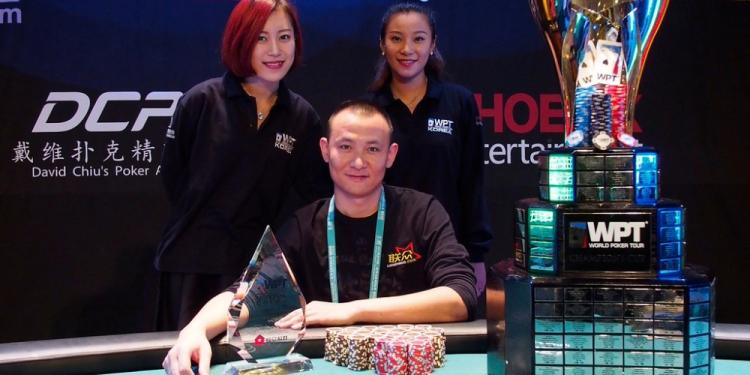Gambling In Chinese Culture – Why The Chinese Love To Gamble
Posted: December 12, 2023
Updated: December 12, 2023
That the Chinese love to gambe is beyond dispute. However, was it always so? And why are the Chinese of today still gambling as much, if not more, than their forefathers? The factination with games of chance has both a historical and cultural foundation. This has lead to gambling becoming an enduring part of Chinese culture.

Gambling in Chinese culture has long been an integral part of Chinese society, deeply embedded in its history, culture, and social fabric. The profound affinity that the Chinese exhibit towards gambling is a complex amalgamation of various factors, reflecting both historical traditions and modern influences. Today at Gamingzion.com, we take a look into the attributes of Chinese culture that influence gambling on a day to day basis.
Historical Roots Of Gambling In Chinese Culture
Gambling in Chinese culture has been popular for millennia. Ancient texts and archaeological evidence point to various forms of wagering activities dating back to imperial China. Games like Pai Gow, Mahjong, and Chinese dice games have been integral to social gatherings and festive occasions for centuries. The roots of China’s affinity for gambling run deep within its cultural tapestry, stretching back thousands of years. Ancient texts and historical records reveal the prevalence of various games of chance and skill during imperial dynasties, reflecting an intrinsic part of early Chinese society.
Concepts of luck, fate, and harmony embedded in Taoist and Confucian philosophies intertwined with the cultural fabric, influencing attitudes towards games involving risk and chance. Social gatherings, festivals, and familial bonds often incorporated gambling activities, fostering communal ties and celebrating fortune during auspicious occasions like the Lunar New Year. Regions like Macau and Hong Kong, serving as historical gambling hubs, further entrenched gambling’s prominence. This rich historical legacy, encompassing social, philosophical, and traditional dimensions, contributes to the enduring allure of gambling in Chinese culture.
Social Bonding And Networking
According to online gambling news in the US, Gambling in Chinese culture holds a distinct place in Chinese social dynamics, often serving as a catalyst for bonding and networking. Traditional games like Mahjong, Pai Gow, and card games are deeply ingrained in social gatherings, fostering camaraderie and connection among participants.
These games create spaces for interaction, enabling individuals to build relationships, strengthen family ties, and forge friendships. The shared experience of strategizing, competing, and celebrating wins or losses cultivates a sense of unity and belonging within communities.
Social events, festivals, and celebratory occasions often feature gambling as a customary tradition, facilitating social engagement and reinforcing cultural connections. The collective enjoyment and shared excitement around these games form an integral part of the social fabric, enhancing communication, trust, and mutual understanding among participants, exemplifying the role of gambling in Chinese culture as a form of social glue in society.
Status And Face Culture
Gambling in Chinese culture intertwines with notions of status and “face” culture, impacting social dynamics. Participation in high-stakes games can symbolise prestige, wealth, and social standing. Hosting or being invited to exclusive gambling sessions might elevate one’s perceived status, contributing to a favourable reputation within social circles. Within the context of “face” culture, engaging in gambling activities can convey confidence, risk-taking, and assertiveness, attributes highly valued in Chinese social settings.
However, the pursuit of status through gambling is a delicate balance, as excessive losses could tarnish one’s reputation. Despite this, the association between gambling and status continues to influence social perceptions, showcasing how gambling intertwines with the complex nuances of status and “face” culture within the Chinese societal framework.
Festive And Celebratory Occasions
Gambling in Chinese culture assumes a significant role during festive and celebratory occasions, embodying tradition, luck, and hopes for prosperity. During Lunar New Year and other cultural festivities, gambling games symbolise auspicious beginnings and the pursuit of good fortune for the upcoming year. These games, often played among family and friends, amplify the festive spirit, fostering a sense of excitement and unity. Betting on games like Mahjong or dice reflects the desire for positive outcomes, aligning with cultural beliefs in luck and destiny.
The act of wagering during these occasions transcends mere entertainment, intertwining with the celebratory atmosphere to bring together generations, strengthening familial bonds, and reinforcing cultural values of fortune and togetherness. The presence of gambling at these events serves as a cultural tradition, adding layers of joy, anticipation, and shared optimism to the celebrations.
Gambling In Chinese Culture – Economic Aspirations
Gambling holds a multifaceted role in reflecting Chinese economic aspirations. For some, it represents an avenue to seek financial improvement and potential prosperity. The allure of hitting a significant win drives individuals, especially in less affluent areas, towards various forms of gambling. The prospect of transforming modest bets into substantial earnings at online casinos like Everygame Casino fuels aspirations for economic betterment. However, as you’re probably aware by now, here at Gamingzion.com. We don’t encourage players to think that gambling is a way of solving financial problems or making a living.
However, it’s crucial to note that while gambling in Chinese culture may offer the hope of financial gain, it also poses risks, and reliance solely on luck for economic advancement can be precarious. Despite this, the allure of a fortunate windfall persists among some, showcasing how gambling intertwines with aspirations for financial elevation in certain segments of Chinese society, highlighting the complex relationship between gaming and economic aspirations.
Influence of Macau And Hong Kong
Macau and Hong Kong hold pivotal roles in shaping the gambling culture among Chinese enthusiasts. Macau, dubbed the “Las Vegas of the East,” boasts a thriving gambling industry and world-renowned casinos, drawing millions of visitors, including a substantial Chinese demographic. Its proximity to mainland China and the legal status of gambling establishments have made it a prominent destination. The allure of luxury casinos, entertainment, and high-stakes gaming creates an appealing environment for Chinese gamblers.
Hong Kong, with its cosmopolitan atmosphere and proximity to Macau, contributes to the gambling culture through accessibility and influence. The collective impact of these regions as vibrant gambling hubs has normalised and popularised gambling activities, significantly influencing Chinese perceptions and behaviours towards wagering, making them integral to the gambling experiences sought by many Chinese players.
Gambling In Chinese Culture – Ease of Access and Technology
The advent of technology and the ease of access to gambling platforms have significantly impacted gambling in Chinese culture. Online gambling platforms and mobile apps offer unprecedented convenience, allowing individuals to engage in various forms of wagering anytime, anywhere. The accessibility of these platforms, including some of the best online casino sites in the US, has attracted a younger demographic, fostering a new generation of gamblers.
Moreover, the anonymity provided by online gambling appeals to some, circumventing social stigmas associated with traditional gambling venues. The evolution of technology has broadened the spectrum of gambling choices, offering diverse options beyond traditional games. This seamless integration of gambling into digital platforms and casinos like Everygame Casino, has reshaped the landscape, expanding opportunities for participation and contributing to the normalisation and popularisation of gambling among Chinese players.
Competitive Spirit And Gaming Skills
Chinese gambling games often showcase a blend of competitive spirit and refined gaming skills. Games like Mahjong, Pai Gow, and certain card games require strategic thinking, calculation, and a keen understanding of the game’s nuances. The competitive nature of these games appeals to individuals seeking intellectual challenges.
In traditional settings, mastering these games not only demonstrates gaming prowess but also embodies intelligence and skill. The pursuit of victory in these skill-based games fosters a sense of achievement and mastery. Beyond mere chance, these games accentuate the importance of strategic thinking and tactical decision-making, elevating the significance of competitive spirit and gaming skills within the realm of Chinese gambling, where success hinges not just on luck but also on strategic acumen.
Conclusion – Gambling In Chinese Culture
The fascination with gambling in Chinese culture is a confluence of historical traditions, cultural beliefs, social dynamics, economic aspirations, and technological advancements. Its multifaceted nature continues to shape the perceptions and behaviours of individuals, from traditional pastimes to modern forms of wagering, making gambling an enduring part of the Chinese cultural tapestry. The intricate relationship between gambling and Chinese culture reflects a blend of tradition and modernity, where the pursuit of luck, social connections, entertainment, and economic aspirations come together in a complex and nuanced landscape. As attitudes towards gambling evolve, its place in Chinese society continues to be a subject of cultural significance and ongoing dialogue.
Click here to try the live casino at Everygame Casino












